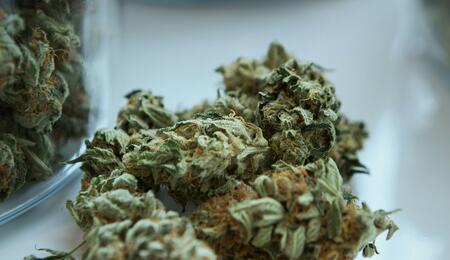New Cannabinoid "Cannabielsoxa" Discovered

A new cannabinoid called cannabielsoxa has been discovered by a team of South Korean researchers. The team's subsequent study has also shown that several cannabis compounds may be effective in treating neuroblastoma, a pediatric cancer.
This team of South Korean government and university researchers announced the identification of a new cannabinoid produced by the Cannabis sativa L. plant, called cannabielsoxa, and several other compounds identified for the first time in the plant.
"This study successfully isolated a new cannabinoid and six known cannabinoid compounds, as well as a new chlorine-like compound and three other chlorine-like compounds that were identified for the first time in Cannabis flowers." sativa L.,” explains the study, published in the journal Pharmaceuticals.
The researchers also evaluated the antitumor effects of 11 cannabis compounds on neuroblastoma cells. They found that seven of them had significant inhibitory activity. Neuroblastoma is a cancer that causes tumours, the most common solid tumours in children and the most common malignant tumours in children under one year of age.
The team discovered that these compounds, along with five other known cannabinoids, could be viewed as possible antitumor compounds against neuroblastoma. These already-known cannabinoids are cannabidiol, CBD, CBDA, CBG, cannabidiolic acid methyl ester (CBDA-ME), and delta-8 THC. The novel cannabinoid, cannabielsoxa, was discovered while scientists were searching for compounds to treat neuroblastoma. However, it does not possess any antitumor properties.
"These results represent a first step toward developing a product for treating neuroblastoma," the researchers stated.
To isolate the various compounds, the researchers used chromatography. They then examined the molecular structures of these compounds. The researchers used a metabolic assay method to assess the compounds' toxicity to neuroblastoma cells.
The team consisted of 14 researchers from government agencies, the Korean Ministry of Food and Drug Safety, the National Institute of Horticulture and Phytotherapy, Wonkwang University, Kyung Hee University, and Kookmi University, among others.
More From Soft Secrets:




